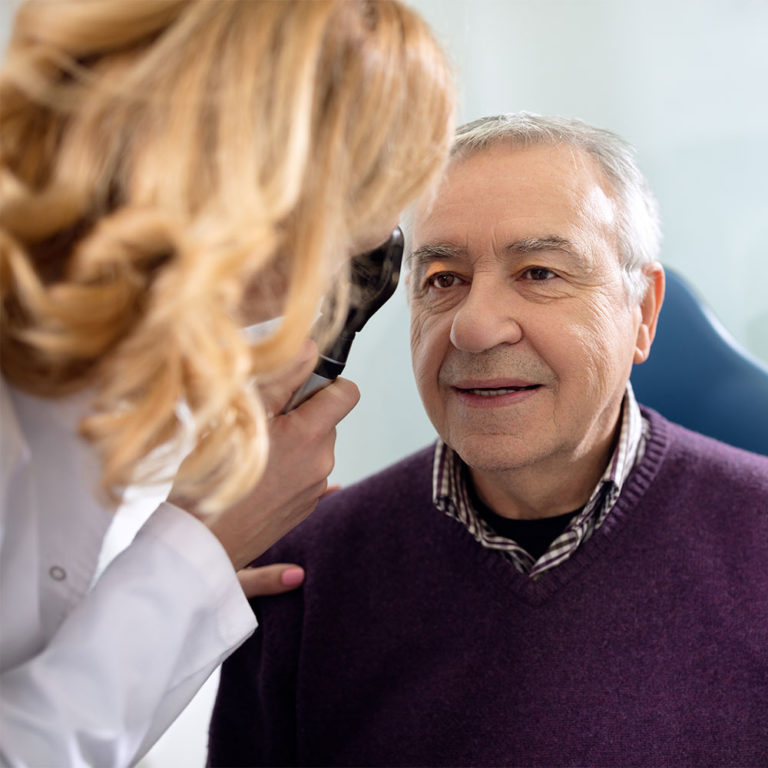Most adults start developing eyesight issues between their mid-40s and early 50s, particularly when reading and working on computers. Poor vision at close distances is one of the most common vision challenges between the ages of 40 and 60. However, this is a normal change with the eye’s ability to focus and may progress with time.
At first, you may have to hold reading materials far away to see them. With time, you may have to remove your glasses to see reading materials up close. Under dim lighting, print newspapers and restaurant menus may appear blurred.
Your vision may improve if you wear prescription glasses or contact lenses. But, if you want to do more to improve your vision, there are other ways to do so. In this article, we explore eight ways to improve your vision over 50.
1. Eat for your eyes
Eating carrots is good for your vision. Although it may sound cliché, it’s not entirely wrong. Carrots are rich in vitamin A, an essential nutrient for vision. However, vitamin A isn’t the only vitamin that promotes healthy eye function. Make sure that you include foods rich in vitamin C, vitamin E, copper, and zinc to your diet.
As you get older, macular degeneration can become your biggest challenge. Antioxidants can help reduce macular degeneration. As such, eat foods such as eggs, pumpkins, carrots, dark leafy greens, and sweet potatoes.
Fish is also great for your eyes. Coldwater fish such as mackerel, wild salmon, and cod are rich in DHA, a fatty acid that strengthens cell membranes, including those in your eyes.
2. Exercise for your eyes
Since eyes have muscles, they could use some exercises to remain in good shape. Eye exercises are great when done in the morning, when your eyes feel tired and before retiring to bed. If you’re consistent for a month, you may start noticing a difference.
Begin by warming your eyes for five seconds with warm palms. Do it three times. Rolling your eyes isn’t just an expression of annoyance, it can help your eye muscles too. Look up and circle your eyes about ten times in both directions.
To sharpen your focus, hold a pen at arm’s length and focus on it. Move the pen closer slowly until it’s about six inches from your nose. Redo this process ten times.
3. Full body exercise for vision
Exercising for at least twenty minutes a day is healthy for your entire body, including your eyes. Improved blood circulation is beneficial to the small blood vessels in the eyes as it removes harmful substances that may have been deposited. Exercise doesn’t have to be intense. In fact, a brisk walk is enough.
4. Rest for your eyes
Closing your eyes for just a few minutes is helpful. You can do this once an hour or many times when you’re hard at work. And if your job involves sitting in front of a computer or reading, closing your eyes can be refreshing. As simple as it sounds, this exercise can protect your eyes from over exertion or fatigue.
5. Get enough sleep
Resting your eyes for a couple of minutes isn’t enough. Your body requires regular, restful sleep. Any doctor will inform you about the importance of sleep for your health and wellbeing. When your body gets enough rest, your eyes become renewed. If you engage in intense visual activity such as working on a computer or reading a book, short breaks go a long way in helping your eyes, as it gives them a chance to rest.
6. Create eye-friendly surroundings
Plenty of things that surround us everyday can be bad for the eyes. For instance, sitting for long periods of time in front of a computer, getting swimming pool chlorine water in your eyes, using dim lighting when reading, and fluorescent lights can degrade your vision. Look out for these conditions and do all you can to reduce exposing your eyes to them.
7. Avoid smoking
Apart from being unhealthy for many reasons, smoking can contribute to blindness. Smoking can increase your chances of developing cataracts and can cause age-related macular degeneration (AMD). Additionally, smoking can reduce the number of antioxidants that are beneficial to your eyes.
8. Have regular eye exams
Most people wait until they experience eyesight problems to get eye exams. Sometimes, that can be too late. Getting eye exams early can help diagnose problems before they become severe. In fact, most vision defects can be corrected when detected early.
Regular vision exams can help by:
- Adjusting prescriptions for corrective lenses: Vision changes with time and the eyeglasses that were once the best diopter might be damaging your eyes now.
- Check alignment: Sometimes turned or crossed eyes can cause strain on eye muscles. Your eye doctor can help diagnose this issue early to avoid causing further damage to your eyes.
- Eye tone: Eye tone changes with age and a corrective lens can bridge any defects.
- Retina exam: Blood vessels present in the retina can be signs of diabetes. Eye exams can reveal more health issues beyond vision.
Conclusion
Beyond 50, vision can be challenging. However, it can be improved with a good lifestyle, healthy nutrition, and regular eye checkups.
Sources
- https://www.aoa.org/patients-and-public/good-vision-throughout-life/adult-vision-19-to-40-years-of-age/adult-vision-41-to-60-years-of-age
- https://www.aao.org/eye-health/tips-prevention/exercise-eyes-vision-4
- https://www.cdc.gov/tobacco/data_statistics/fact_sheets/health_effects/effects_cig_smoking/index.htm

